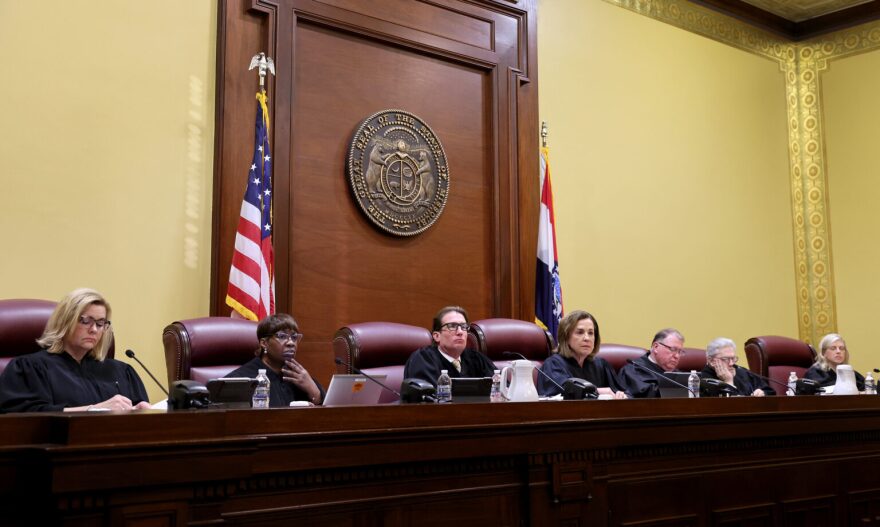Wondering how to vote for judges up for retention this Election Day? You're not alone. Missouri and Kansas voters will see a handful of judges on the Nov. 5 ballot.
In Missouri, judges on the Missouri Court of Appeals - Western District are up for retention, as are two Missouri Supreme Court judges. The Western District covers 45 counties, the majority west of Columbia and north of Lake of the Ozarks. This includes Kansas City, St. Joseph and Jefferson City.
In Kansas, 14 judges are on the Court of Appeals, the state's second highest court, which hears appeals from all lower district courts in civil and criminal cases. These judges face retention every four years.
KCUR's former legal affairs editor, Dan Margolies, says Missouri and Kansas use non-partisan merit selection systems for judicial elections, although parts of both states still elect judges to office.
"The process is pretty much the same," Margolies told KCUR's Up To Date. "Non-partisan commissions consisting of lawyers and laymen alike nominate three candidates to fill judicial vacancies, and then the governor picks one of those."
Margolies explains that in the general election following a Missouri judge's first year of service, the judge must then go up for retention votes. Judges who stand for retention must get 50% support to remain on the bench.
"The whole idea, obviously, the whole rationale for these non-partisan court plans is to get politics out of —to the extent that's possible — out of the system," says Margolies.
Below, find guides on some of the Missouri and Kansas judges running in retention races, from the KC Voter Guide.
- Dan Margolies, former KCUR legal affairs editor






